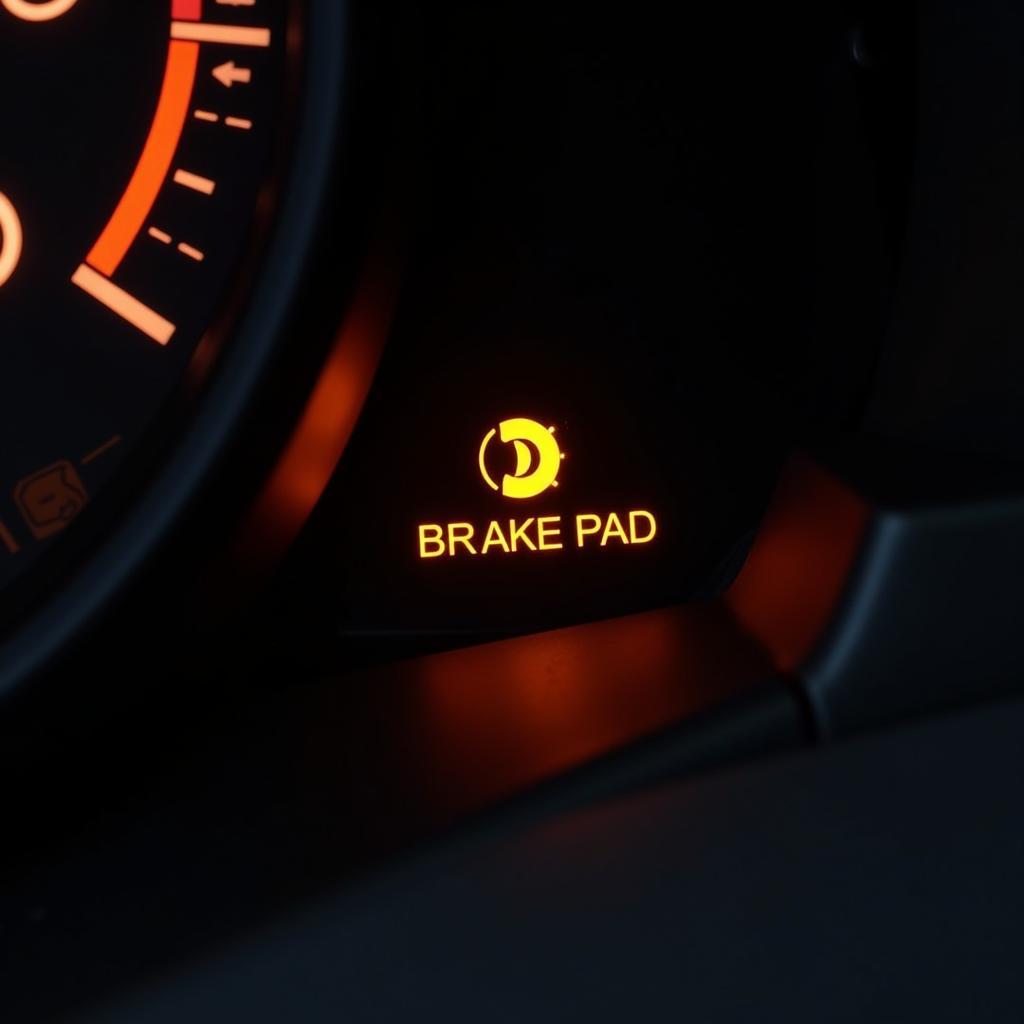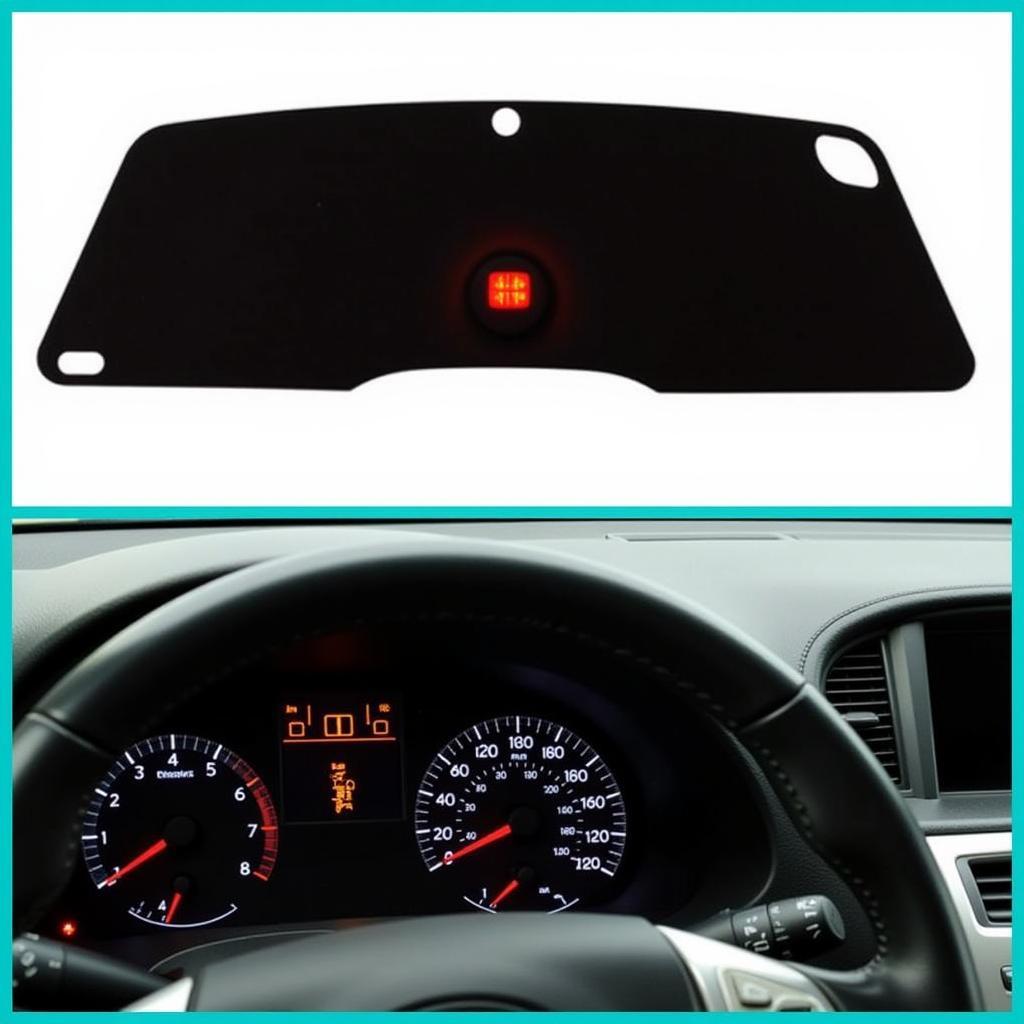That dreaded rapid clicking sound when you turn your key? It’s a frustrating experience every driver fears. This article tackles the “car not starting rapid clicking” issue head-on, providing you with the knowledge and steps to diagnose and potentially fix the problem yourself.
A rapid clicking sound when trying to start your car often points to a weak or dead battery. However, several other culprits can mimic this symptom, making accurate diagnosis crucial. This guide will cover everything from the most common causes to more complex electrical issues, equipping you with the tools to get your car back on the road. We’ll discuss simple checks you can perform at home and when professional help is necessary.
Why is My Car Making a Rapid Clicking Noise When I Try to Start It?
The infamous clicking usually originates from the starter solenoid, a small but vital component responsible for engaging the starter motor. When your battery lacks sufficient power, the solenoid can only manage a rapid clicking instead of fully engaging the starter. This could be due to a variety of reasons.
Common Causes of Car Not Starting and Rapid Clicking
- Dead or Weak Battery: This is the most frequent reason for the clicking. A battery loses its charge over time, especially in extreme temperatures. signs of faulty car battery can include dimming headlights, slow cranking, and of course, rapid clicking.
- Corroded Battery Terminals: Corrosion on your battery terminals hinders the flow of electricity, effectively weakening the connection. Cleaning the terminals can often resolve the issue.
- Faulty Starter Solenoid or Starter Motor: While a weak battery is usually the culprit, a faulty starter solenoid or motor itself can also cause the clicking noise.
- Loose or Damaged Battery Cables: Check your battery cables for any signs of damage, fraying, or loose connections. A poor connection can prevent sufficient power from reaching the starter.
- Electrical Problems: Less commonly, more complex electrical problems within the vehicle’s system can lead to a clicking starter.
“A quick check of the battery terminals is often the first step,” says automotive electrical expert, John Peterson. “Corrosion can significantly impede current flow and mimic a dead battery.”
How to Troubleshoot a Car Not Starting With Rapid Clicking
Here’s a step-by-step guide on how to troubleshoot your clicking car:
- Check the Battery Terminals: Inspect the terminals for any corrosion. Clean them with a wire brush and baking soda solution if necessary. symptoms of a faulty car battery often manifest as corrosion.
- Test the Battery Voltage: Use a multimeter to check the battery’s voltage. A healthy battery should read around 12.6 volts. Readings significantly lower indicate a weak or dead battery.
- Try Jump Starting: If you suspect a dead battery, try jump-starting your car. If the car starts, it confirms the battery issue. battery issues in car are frequently resolvable with a jump start.
- Inspect the Battery Cables: Ensure the cables are securely connected to the battery and starter. Look for any signs of damage or fraying.
“Jump starting can often get you back on the road temporarily, but a load test is essential to determine the battery’s overall health,” advises electrical systems specialist, Maria Rodriguez.
When to Seek Professional Help
If the clicking persists after trying these steps, it’s time to consult a qualified mechanic. The problem might lie with the starter motor, solenoid, or a more complex electrical issue requiring specialized diagnostic equipment and expertise.
Conclusion
Experiencing a car that won’t start and emits a rapid clicking noise can be stressful. However, understanding the potential causes and following the troubleshooting steps outlined above can help you determine the root of the problem. Remember, while a dead battery is often the culprit, signs of a weak battery can also lead to a car not starting rapid clicking. Don’t hesitate to seek professional help when needed.
FAQ
- What does rapid clicking when starting a car mean? It usually indicates a weak or dead battery, preventing the starter from engaging.
- Can I drive my car after jump starting it with a dead battery? Yes, but it’s essential to get the battery tested and potentially replaced. sign of car battery dead is the clicking noise and inability to start.
- How long does a car battery last? Typically, car batteries last 3-5 years, depending on usage and climate.
- How much does it cost to replace a car battery? The cost varies depending on the type of battery and your vehicle, but expect to pay between $100 and $300.
- What are other signs of a bad starter? Other signs include a grinding noise when starting, intermittent starting problems, and the starter continuing to run after the engine is on.
- Can a bad alternator cause rapid clicking? While unlikely to directly cause rapid clicking, a bad alternator can eventually lead to a dead battery, which then causes the clicking.
- How can I prevent car battery problems? Regular maintenance, including cleaning terminals and checking the voltage, can help prevent issues.


